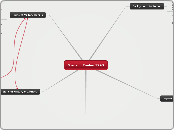Siege of Toulon 1793
Background to Toulon
Toulon was one of few strongholds left to fall to the Revolution. The British were controlling the bay in the city and the French, with General Carteaux in control, where no closer to regaining the city.
Napoleon was originally sent to the be part of the French Army of Italy on the Italia border. However he heard that in Toulon the artillery general had been wounded and was now out of action.
Napoleon begged a polictical leader, who was an old friend of his family, to assign him to the Artillery Commander. After completing some favours for him, Napoleon was made a temporary major (chef-de-battalion)
Napoleon's Actions
Napoleon immediately started to plague Carteaux, stating that the Revolutionaries should focus their attacks on gaining the higher ground and firing down on the British navy. This would force the British to pull out, taking their land army with them.
General Carteaux however, wanted to bide his time, knowing that other cities had fallen and that soon he would recieve reinforcements that would allow him to breach the city walls. He was wary of making a mistake too, knowing that he could be accused of treason and be killed by the guillotine.
Napoleon went above Carteaux's head, presenting his plan to Paris and recommending the dismissal of Carteaux. Paris agreed and he was replaced by General Dugommier, who instantly approved Napoleon's plan to attack and gain the upper ground above the port.
On ther 14th December 1793, the attack on Eguillette began and by the 17th Napoleon had helped to take the fort. He had started with the reserves but led them in to assist in the victory. He immediately set up the artillery to fire down on the Britsh fleet and on the 18th December the British left the port. Napoleon was then promoted to brigadier general at 24
Signs of Military Genius
Napoleon had the bravery to beg to become involved in the Toulon dispute. This shows his military genius and his desire to make a name for himself and to gain the glory.
Napoleon also showed military genius when he persuaded and inspired the reserves to attack. He showed that he was not going to allow anything to stop him from becoming involved in the battle and cleverly turned the situation to make it look as though the reserves were needed, before inspiring them to victory.
Napoleon did not allow the British to regroup once he had the upper hand and the higher ground. He relentlessly bombarded them until they left the port. This shows his ruthlessness and ability to exploit weaknesses that his opponents show, something he uses in later battles in his career.
Signs of Military Weakness
Napoleon was injured in the battle of Toulon, although it was only a minor injury. He sustained a bayonet to the leg. This event shows both military genius and weakness. Genius because it would inspire stories of bravery and would further motivate his men. Weakness because he was hurt and could of ended his career before it had started. Overall, it was one of only two injuries in his whole career, both of which were minor.
Napoleon was overconfident in his predictions of how easy victory could be. Although General Carteaux did provide him with fewer men, the predictions showed an arrogance in Napoleon. If he predicted incorrectly then he could easily find himself on the guillotine.
Effects and Consequences of Napoleon's actions
In Toulon, Napoleon Bonaparte made a name for himself. People sat up and took notice of someone who showed tactical strengths, confidence and ruthlessness. France was in a delicate state and was up for the taking if someone had the courage and audacity to attempt to take control. Napoleon would go on to become that leader, and it all started in Toulon.
